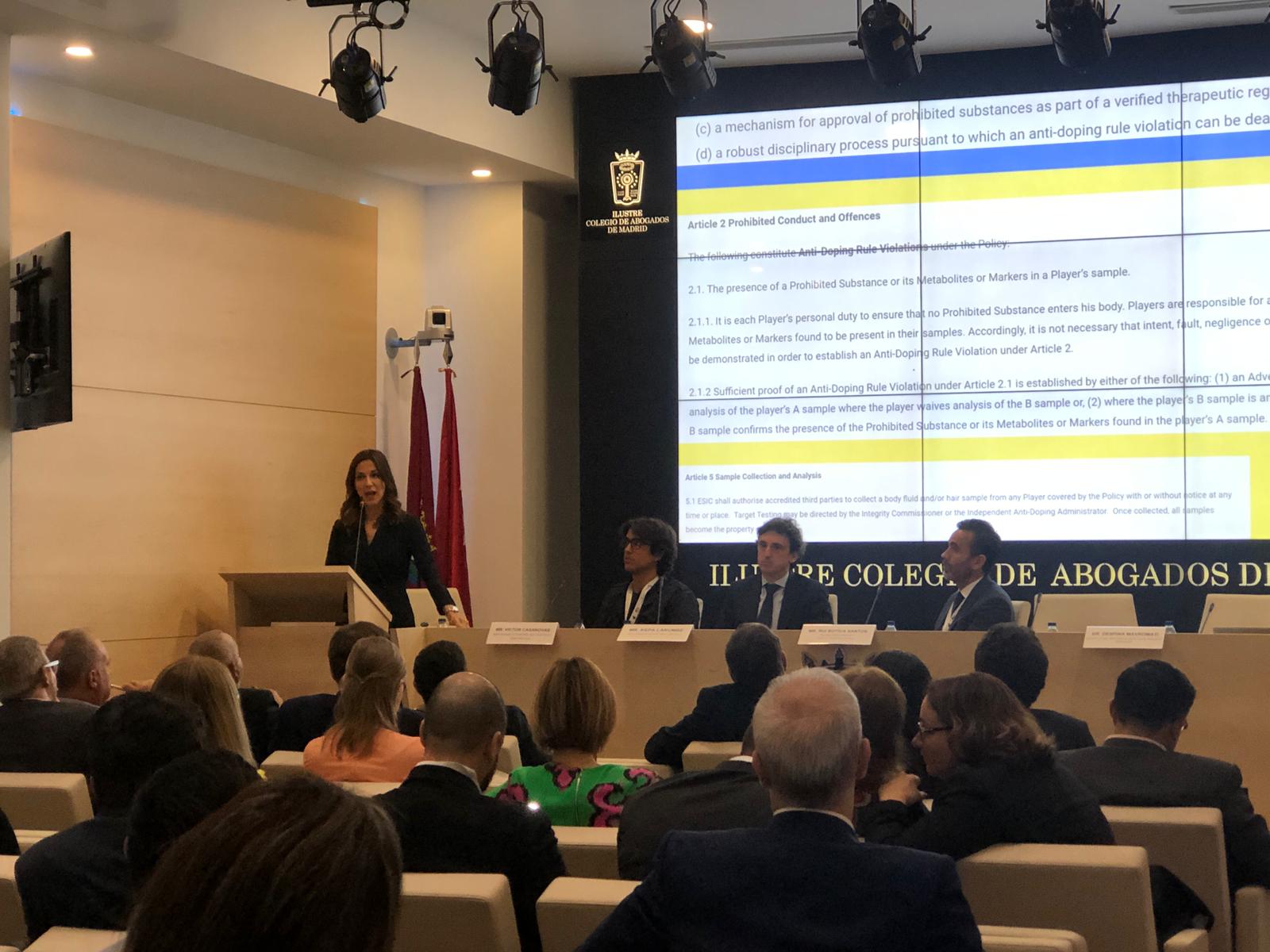By Andrew Warshaw
May 14 – To what extent does doping infiltrate esports, a craze that has enjoyed phenomenal growth in recent years with prize pools of several million dollars and FIFA even organising their own eWorld Cup?
That was the theme of one of the key sessions at last week’s Sports Law at the Crossroads conference in Madrid which looked at the evolution of esports, now a mainstream form of entertainment, and whether it has an adequate legal framework and how far traditional sports regulation can be applied.
Doping and matchfixing are both of growing concern to the Esport Integrity Coalition (ESIC) with multiple players performing in live-streamed matches. Esports now has its own star performers and leagues with tournaments that sell out stadiums with online audiences also in the millions.
Adderall, a prescription amphetamine, has long been the main concern in esports since it is reported to keep the user calm, awake and energised.
The main problem, delegates in Madrid were told, is that esports lacks a uniform anti-doping policy and governance.
The conference heard how tough it was to identify dopers amid an ongoing debate over the correlation between esports and traditional sports as far as performance enhancing drugs are concerned.
Dr Despina Mavromati, attorney at law, International Sports Law and Arbitration, Switzerland, said that while there were few known instances of doping infractions, she referred to the case of Canadian Kory Friesen who back in 2015 boasted that he, his teammates and other professional gamers took prescription drugs to help them focus in a competition.
Although ESIC has its own list of prohibitive substances and its own sanctions, there is no formal way of ensuring compliance among the different stakeholders.
“The prohibited list is really elementary and limited to stimulants. Unfortunately we don’t have a supervising international federation in this jungle,” Mavromati said. “How do we ensure enforcement? Who tells us that a gamer who has been suspended will not go elsewhere to compete in another competition?”
“It’s still a primitive environment when it comes to regulation. Some form of anti-doping control is necessary, not only to level the playing field but also for health reasons.”
“Players may not have the physical effort in esport that exists in traditional sports…but they do need to have increased concentration and focus. It’s a completely different environment to the highly regulated area of Olympic sports.”
Contact the writer of this story at moc.l1751417298labto1751417298ofdlr1751417298owedi1751417298sni@w1751417298ahsra1751417298w.wer1751417298dna1751417298

